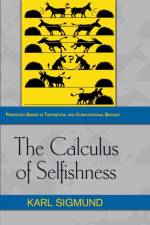av Karl Sigmund
375,-
"Over Plato's Academy in ancient Athens, it is said, hung a sign: "Let no one ignorant of geometry enter here." Plato thought no one could do philosophy without also doing mathematics. In The Waltz of Reason, mathematician and philosopher Karl Sigmund shows us why. Charting an epic story spanning millennia and continents, Sigmund shows that philosophy and mathematics are inextricably intertwined, mutual partners in a reeling search for truth. Beginning with-appropriately enough-geometry, Sigmund explores the power and beauty of numbers and logic, and then shows how those ideas laid the ground work for everything from the theory of a fair election, to modern conceptions of governance, cooperation, morality, and even of reason itself. Did you know, for example, that John Locke, author of some of the most important texts in the Western theory of government, was motivated in his work by his study of geometry? Or, that Locke was actually terrible at geometry, a seventeenth-century mathematical laughingstock? He was, a fact that might want us to think again about the logic of his life's work. And Locke wasn't the only one! Sigmund reveals how many of our modern ideas about what is true and what is reasonable are based on similarly shaky grounds. The economists and other thinkers who promulgated game theory, classical economics, and behavioral economics-the basis of so much in modern life-were not necessarily good at either math or philosophy, or both. The result is a remarkable book: accessible, funny, and wise, it tells an engrossing history of ideas that spins as dizzyingly and beautifully as a ballroom full of expert dancers. But it doesn't just celebrate the past. Instead, by making all these great ideas accessible to all, The Waltz of Reason empowers as it entertains, giving each of us the tools to ask, what do we know, how do we know it, and what do we want to do, with all these ideas?"--



